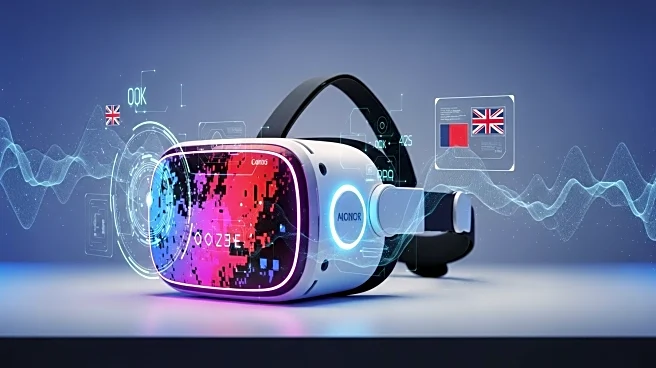What is the story about?
What's Happening?
A pioneering trial at the University of Southampton is utilizing computer games to potentially improve vision in children with nystagmus, a condition characterized by rapid, uncontrollable eye movements. Nevaeh, a five-year-old from Jersey, and her sister Novah, both affected by nystagmus and albinism, are participating in the trial. The games, developed by Nucleolus Software, aim to track eye movements and assess the effectiveness of supportive treatments like glasses. Dr. Jay Self, leading the trial, emphasizes the limitations of traditional eye tests and the potential of these games to simulate real-life situations, offering a more accurate measure of visual improvement.
Why It's Important?
This trial represents a significant advancement in the treatment of nystagmus, a condition affecting vision in individuals with albinism. By using video games to track eye movements, researchers can better understand the effectiveness of current treatments and develop new ones. This approach could lead to improved quality of life for children with nystagmus, allowing them to better navigate everyday situations. The initiative also highlights the importance of innovative medical research and the potential for technology to address complex health issues.
What's Next?
The trial is part of the new £100m Institute for Medical Innovation, a collaboration between the University of Southampton and University Hospital Southampton NHS Foundation Trust. As the trial progresses, researchers will continue to monitor the participants' vision improvements and gather data to refine the games and treatments. Carly, Nevaeh's mother, hopes the trial will enhance her daughter's eyesight as she begins school, and aims to raise awareness about nystagmus and albinism to foster understanding and acceptance.
Beyond the Headlines
The use of video games in medical trials underscores the growing intersection between technology and healthcare. This approach not only offers a novel method for assessing vision but also challenges traditional perceptions of medical testing. By raising awareness of nystagmus and albinism, the trial also contributes to broader societal understanding and acceptance of genetic conditions, potentially reducing stigma and empowering affected individuals.















